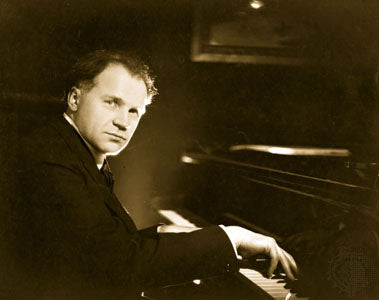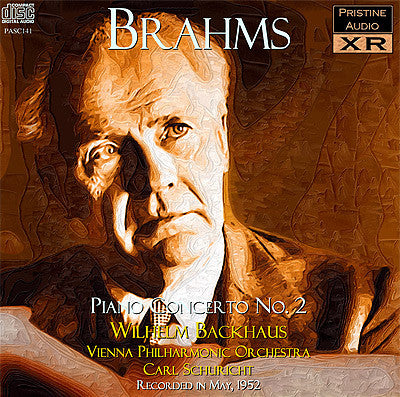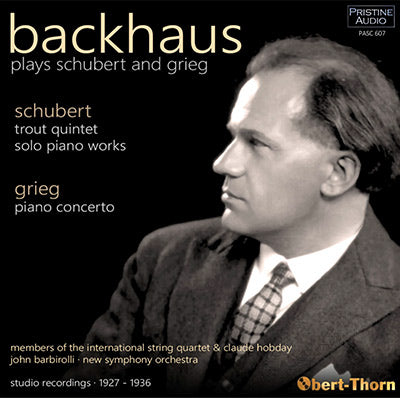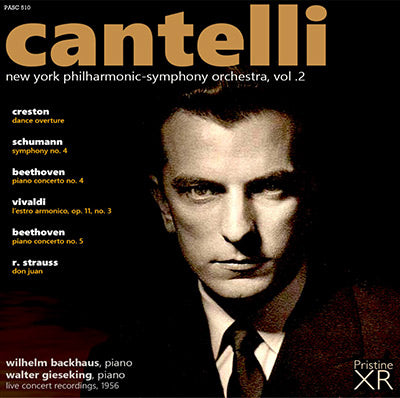Wilhelm Backhaus

Wilhelm Backhaus (26 March 1884 – 5 July 1969) was a German pianist and pedagogue. He was particularly well known for his interpretations of Mozart, Beethoven, Schumann, Chopin and Brahms. He was also much admired as a chamber musician.
According to some critics,[citation needed] Backhaus was one of the first modern artists of the keyboard (in opposition to Alfred Cortot) to interpret classically or objectively, based on greater fidelity to the text. One of the first pianists to make recordings, he had a long career on the concert stage and in the studio. He recorded the complete piano sonatas and concertos of Beethoven and a large quantity of Mozart and Brahms, and he was also the first to record the Chopin études, in 1928; this is still widely regarded as one of the best recordings (Pearl 9902 and others); many say the best. Recordings of various etudes also exist from the early 1950s, when Backhaus was nearly 70 years old.
His 27 January 1936 recording of Brahms's Waltzes, Op. 39, runs just over thirteen minutes. His studio recordings of the complete Beethoven sonatas, made in the 1950s and '60s, display exceptional technique for a man in his seventies (Decca 433882), as do the two Brahms concertos from about the same time (Decca 433895). His live Beethoven recordings are in some ways even better, freer and more vivid (Orfeo 300921). On the other hand, his playing was sometimes accused of being "mechanical" and "lacking in insight."
His chamber recordings include Brahms's cello sonatas with Pierre Fournier, and Schubert's Trout Quintet with the International Quartet and Claude Hobday.
The Times praised Backhaus in its 1969 obituary for having upheld the classical German music tradition of the Leipzig Conservatory. His phenomenal transposing powers spawned many anecdotes: finding the piano a semitone too low at a rehearsal of Grieg's A minor Concerto, he simply played it in B-flat minor — and then in the original A minor at the concert after the instrument had been correctly tuned.
Backhaus was quick to recognize the importance of the gramophone. His 7/15/1909 severely abridged recording of the Grieg Piano Concerto, lasting about six minutes, was not only the first recording of that work, but the first time any concerto had ever been recorded. He recorded it complete, and magnificently, in the early 1930s.
At his death, Backhaus was just completing his second complete Beethoven sonata cycle. All that was missing was the Hammerklavier Sonata — according to Stephen Kovacevich, Backhaus was the only pianist to have really understood it.

Wilhelm Backhaus
Wilhelm Backhaus (26 March 1884 – 5 July 1969) was a German pianist and pedagogue. He was particularly well known for his interpretations of Mozart, Beethoven, Schumann, Chopin and Brahms. He was also much admired as a chamber musician.
According to some critics,[citation needed] Backhaus was one of the first modern artists of the keyboard (in opposition to Alfred Cortot) to interpret classically or objectively, base...
BRAHMS Piano Concerto No. 2
Recorded 1952
Total duration: 45:51
Wilhelm Backhaus, piano
Vienna Philharmonic Orchestra
conducted by Carl Schuricht
SCHUBERT 'Trout' Quintet
SCHUBERT Solo piano works
GRIEG Piano Concerto
Studio recordings, 1927-36
Total duration: 77:09
Wilhelm Backhaus, piano
Members of the International String Quartet
Claude Hobday, double bass
New Symphony Orchestra
conducted by John Barbirolli
BEETHOVEN Piano Concerto No. 4
BEETHOVEN Piano Concerto No. 5
SCHUMANN Symphony No. 4
VIVALDI L'Estro Armonico: Concerto Grosso No. 11
R. STRAUSS Don Juan
CRESTON Dance Overture
Recorded in 1956
Total duration: 2hr 23:36
Wilhelm Backhaus, piano
Walter Gieseking, piano
New York Philharmonic-Symphony Orchestra
Conducted by Guido Cantelli
- Previous
- Page 3 of 3
-
Next



